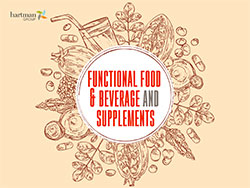
Life is a little chaotic these days — maybe you’ve missed the wide range of insights we’ve worked on over the last six months about how consumers are navigating the new normal. Listen, watch or read: From podcasts to webinars to essential articles (and many things in between), here’s a collection of insights that relate to how consumers are navigating the pandemic in terms of eating, grocery shopping and looking to boost immunity and resilience from functional foods, beverages and supplements.
Have a Listen to Insights:
Podcast: Mealtimes Are Blurring: Mac & Cheese for Breakfast

Amidst the challenges of the pandemic, Kraft Mac & Cheese offers parents and their finicky kids a way to rethink breakfast and underscores the notion that foods are no longer relegated to the occasions that they were originally marketed to. Find out why we think this is all part of a more flexible approach to meals and highlights a way in which parents are seeking a degree of balance between health and wellness, indulgence, convenience and comfort foods.
Podcast: What’s the Long-Term Impact of the Pandemic on Food Shopping?
As consumers try to stay at home and avoid contact as much as possible, the surge in online grocery shopping has been well documented. But what changes in food shopping will persist long after the pandemic subsides as in-person vs. virtual food shopping become everyday possibilities?
Podcast: Consumers' Adapting Behaviors in Time of Crisis
In this podcast episode, our analysts share findings from virtual ethnographies we conducted to understand how the pandemic is affecting people’s lives. From mental health to grocery shopping and minding their quarantine pantries, consumers are developing scrappy solutions to feel more empowered and self-reliant in a time when events seem beyond their control.
Watch Insights:
Webinar Recording and PDF: COVID-19’s Impact on Eating Report Highlights

Leveraging the Spring 2020 wave of our proprietary Eating Occasions Compass, this webinar highlights findings from our COVID-19’s Impact on Eating report and provides insights into how eating and drinking are, and will continue to be, affected by the pandemic by diving into the who, what, when, where, why and how behind eating occasions.
Further Information on the COVID-19’s Impact on Eating report is here.
Webinar Recording and PDF: Functional Food & Beverage 2020 Report Highlights

The Functional Food & Beverage 2020 Report Highlights webinar, presented by Hartman Group CEO Laurie Demeritt, provides insights from the Functional Food & Beverage 2020 report on topic areas that include: functionality in context, consumer engagement and understanding, functional foods and beverages, supplements and a special topic focus: COVID-19: systems under stress.
Further information on the Functional Food & Beverage 2020 report is here.
Insights to Read:
The Big Shift in Consumer Behavior: Meeting the Challenges of Cooking in the Time of COVID-19

Since mid-March, as millions of Americans have hunkered down at home due to the coronavirus pandemic, Hartman research indicates that consumers have adapted their food preparation strategies to align with the realities of the times. Consumers are altering their meal planning, shopping and cooking behaviors as they learn to cope with the reality of the COVID-19 health crisis. To understand how the coronavirus pandemic impacts consumers’ lives near- and long term, The Hartman Group has been conducting ongoing qualitative and quantitative research around this constantly evolving situation.
In a Time of High Anxiety, Consumers Turn to Functional Solutions — but What Does “Functional” Mean?
Prior to the pandemic, Americans were already feeling anxious and stressed. The Hartman Group’s Health + Wellness 2019: From Mindfulness to Moderation report highlighted rising anxiety as a primary health issue facing consumers. Now, halfway through 2020, with the ongoing pandemic fear of contagion adding fuel to the ever-increasing stress of daily life, it is not surprising that the issue of anxiety continues to be prominent. Routine activities such as work, shopping, dining out and childcare have all been disrupted, contributing to a national mood that feels generally fearful and uncertain.
